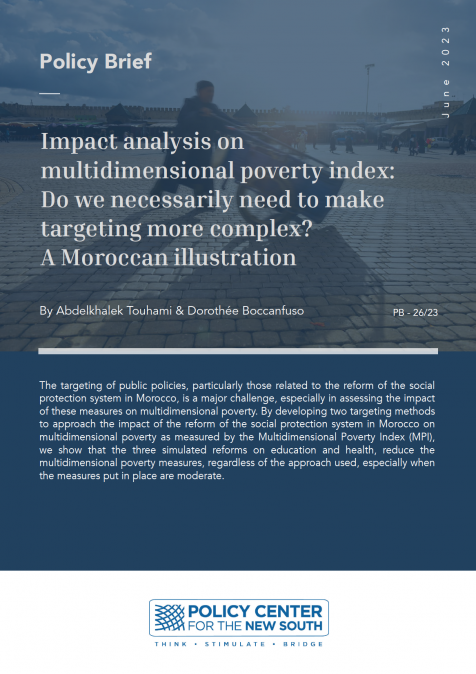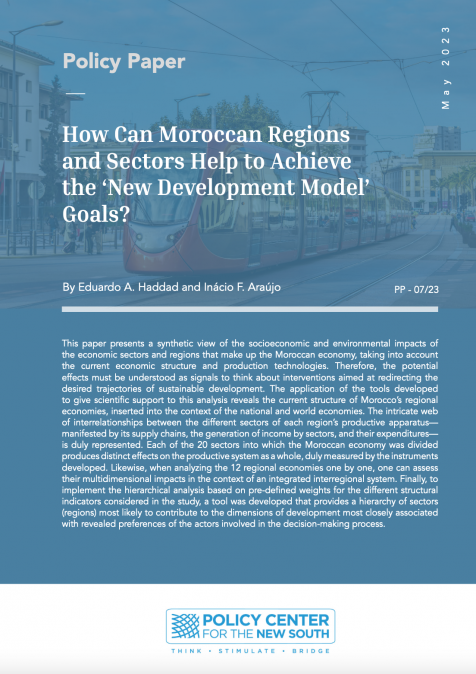Publications /
Opinion
Almost 25 years have passed since the fourth world conference on women in Beijing in 1995. At that time, governments and women’s rights organizations adopted the Beijing Platform for Action to advance women’s rights globally. In November 2019, I attended the Paris Peace Forum panel discussion on ‘how to make the Generation Equality Forum of May-July 2020 a transformational moment’. Also in 2019, France and Mexico agreed to host the Generation Equality Forum in 2020. This Forum, convened by UN Women and organized in close partnership with civil society, will celebrate the 25th anniversary of the adoption of the Beijing Platform for Action.
According to the panel speakers in Paris Peace Forum, the major challenges for the advancement of women’s rights are money and financing the transformation, and having numbers attached to actions with practical objectives. In that sense the new stakeholders emerging in the conversation on gender equality—corporations—are an as yet untapped asset. The key is corporates sitting at the table alongside governments and civil society, which was not the case in Beijing. With more women than ever in the workplace, companies have had to adapt internally and externally. So gender equality is becoming a mission for all major stakeholders in society. The tools that were put in place over the last two decades for governments and civil societies, including quotas, gender mainstreaming policies, and training, so they could adapt programs and internal practices, are increasingly deployed in the private sector. Job functions such as gender coordinator, diversity and inclusion leaders and experts are spreading through companies. Enterprises have well understood the need to communicate about gender equality, breaking through the glass ceiling, as much as they communicate about the products or services they sell. Women cannot be excluded anymore. What’s happening with gender equality in the private sector is comparable to what happened with sustainability and corporate social responsibility two decades ago—the move from compliance to a systemic paradigm shift.
So how is it that we have not achieved equality yet? How can we go beyond pink washing?
In the work environment gender should play little role. But in the neoliberal patriarchal system that dominates our societies, there is still general discrimination against women or queer people. Discrimination is seen in wage inequality, harassment, and other different treatment. Most organizations and teams who are working to advance gender equality are doing so within this same broken system. The conversation about gender equality is deeply linked to the conversation around power structures
Power dynamics are shifting in our digital era, shaping a new economy. Gar Alperovitz described the New Economy (in the US context) as “... a far-ranging coming together of organizations, projects, activists, theorists and ordinary citizens committed to rebuilding the American political-economic system from the ground up.” In 2009, Sarah van Gelder wrote, “The new economy is about increasing quality of life, improving health, and restoring the environment.”
Organizations cannot achieve gender equality without changing their working cultures to adapt to the new economy. The policies of diversity and inclusion mark wonderful progress by companies but the key for a deep change in gender equality resides in a cultural shift, new leadership, and horizontal organizational management. I started the Hyper-Gender project to explore this theory from different angles, using embodiment and collective-intelligence workshops alongside research from around the world.
The new economy creates safe spaces of inclusivity
The new-economy is shaped by different power dynamics, creating ecosystems and organizations shaped by emergence. The concept of emergence has been defined by the leadership guru Nick Obolensky as “the way complex systems and patterns arise out of a multiplicity of relatively simple interactions.”[1] These emergent organizations are more decentralized, collaborative, and questioning of the status quo, and are therefore more inclusive. New-economy organizations are often structured around decentralized governance, collective intelligence, horizontal management and emotional leadership. As a facilitator using these different tools to help organizations through transforming individuals and collectives, I have been able to navigate many sectors—international organizations, grassroots activists, foundations and companies, social movements and global distributed networks.
In his book “Reinventing Organizations”, Frederic Laloux describes the cultural shift happening in these next-stage organizations, which he calls ‘Teal Organizations’. They share a self-management approach based on peer relationships, safe spaces for people to “reclaim their inner wholeness” and a quest for meaningful purpose: “the Tealparadigm refers to the next stage in the evolution of human consciousness. When applied to organizations, this paradigm views the organization as an independent force with its own purpose, and not merely as a vehicle for achieving management's objectives.”[2]
Indeed, more and more organizations are shifting towards new forms of leadership and cultural transformation brought by the new economy, giving more space to emergence strategies[3] and emotional intelligence. The MIT’s Presencing Institute developed the “Theory U”, exploring how “the quality of the results that we create in any kind of social system is a function of the quality of awareness, attention, or consciousness that the participants in the system operate from.”[4], using MOOCS[5] and workshops practices, like the Social Presencing Theater. This powerful social technology tool has been created by Arawana Hayashi to bring transformative learning to any kind of organization, “through a synthesis of mindfulness, creative embodied expression, and group dialogue”.[6] I have been using it in the last 4 years with groups with Hyper-Gender to help them solve tensions linked to gender dynamics, inclusion, diversity.I am amazed by how effective this tool is in opening people’s mind and their awareness to these issues in a deeper way, as well as by the long-term changes that follow.
By bringing values of trust, openness, and transparency into organizations and processes - often based on biomimicry[7], the new economy becomes more inclusive. As long as the individuals progress towards more enlightenment, it became clear to me that the way we interact with greater fluidity and attention to each other, professionally and personally, has an impact on social interactions and gender dynamics. This authentic approach of the individual creates safe spaces, where people can discard the masks they have been taught to wear in traditional management structures. The paradigm shift we have been witnessing in power structures in the economy also impacts the gender balance.
Beyond the Masculine/Feminine Binary
In 2015 in a book published with the OuiShare collective about a Collaborative Society[8], I wrote a chapter about horizontal and decentralised organizations and feminine leadership. The cultural shift in new-economy organizations is often analyzed as a journey towards more feminine leadership or how leaders should think more in a feminine way. But this is a common misuse of the word ‘feminine’ to describe emotional intelligence and inclusive leadership.
Rethinking masculinity is gaining popularity in business as well. Gender theory talks about “Masculinities as not equivalent to men; they concern the position of men in a gender order.”[9] The central question here is how we can get rid of toxic masculinity in the workplace? The answer is with more intuitive leadership and emotional intelligence, teaching people to talk about their feelings, listen to each other, make time to connect, and nurture relationships over outcomes. These practices contribute to safer environments for both men and women to thrive and collaborate.
A few years ago, while I was touring the MENA region with the Womanity Foundation, leading a program to challenge narratives and social norms based on gender-based discriminations[10], violence against women, and their roles and rights in society, I met Anthony in Beirut. He was working for the feminist NGO Abaad, running a program called RA from ‘rajoul’[11], to teach Lebanese boys in high schools how they need to break away from the male stereotype, and how they should be allowed to express their emotions and vulnerability. It was a collaboration with the Brazilian organization Promundo, a key player working on masculinity, promoting what they call healthy masculinity (or positive notions of what it means to be a man). Anthony used to be a gang member in his youth, and he completely changed life to become a psychologist to work on these issues: “When one man questions his use of violence (in any form – physical, verbal, emotional, or economical), it is proof that people can change. If people can change, and enough of them do, then societies can change.”[12]
So talking about feminine leadership is a first step but we need to go beyond. For me, these observations, although they already bring a new perspective to gender dynamics, need to be explored even more, to respect the polarity without keeping a binary and segmented approach. We lack words to express the evolution of the set of values we attribute to ‘feminine’ or ‘masculine’. They are still based on how we expect women or men to behave. The binary approach typically taken to masculinity and femininity is shifting towards an understanding of our inner complexity and the need to embrace the fluidity of feelings and self-expression of ourselves and our inner values.
"There are new strategies emerging, or being remembered - many would describe this as a shift from a masculine to feminine (or patriarchal to feminist) leadership. I think it is also about something beyond all of our binaries - evolving in relationship with our hierarchical tendency" adrienne maree brown[13].
We must question gender inequality that holds back true collaboration and that still persists in even very progressive spaces. And there are two ways of bridging this gap. The first consists of bringing the gender conversation within new-economy environments, which has been part of my work for the last four years. The second is to bring the new-economy cultural shift, with emotional leadership and collective intelligence, to corporates and more traditional organizations working to achieve gender equality. The change will come as more and more women embrace leadership positions and have their voices heard, alongside more questioning by men of the patriarchal culture in the workplace. When empathy and listening become core values, people who are used to their privileges will question them and become more aware of the minorities and their struggles. Allowing other ways of relating and behaving, more collaborative, inclusive, intentional, to emerge.
Asmaa Guedira is an Alumna of the 2017 Atlantic Dialogues Emerging Leaders Program (ADEL).
[1] Obolensky N. (2010) "Complex Adaptive Leadership - Embracing Paradox and Uncertainty" https://www.goodreads.com/en/book/show/9429170-complex-adaptive-leadership
[3] I highly recommend adrienne mared brown’s book on this topic :https://www.goodreads.com/en/book/show/29633913-emergent-strategy
[5] MOOCS stands for Massive Open Online Courses
[7] See https://biomimicry.org/what-is-biomimicry/
[9] Published in 1985 in a long article, 'Toward a New Sociology of Masculinity'.
[10] See http://www.fondationchanel.org/en/asmaa-guedira-we-have-to-change-the-image-of-women-in-society-and-counter-conservative-discourses/
[11] Which means ‘man’ in Arabic.
[12]Quote from: https://www.theguardian.com/global-development-professionals-network/2014/jun/10/womens-rights-middle-east-abaad
[13] https://www.goodreads.com/en/book/show/29633913-emergent-strategy









